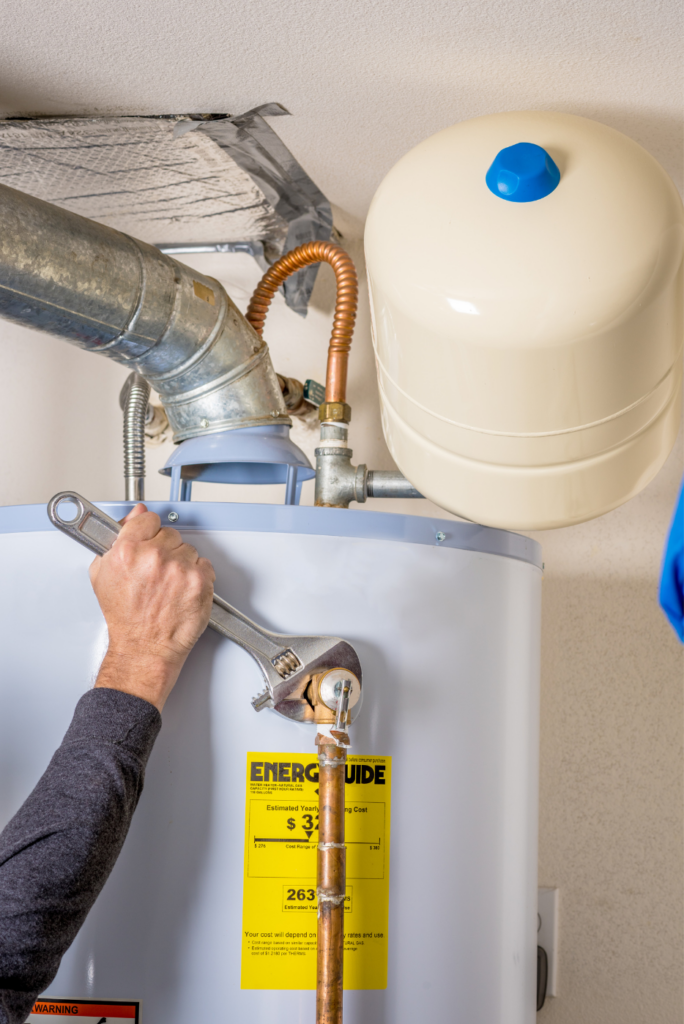What To Do For Regular Heater Problems
What To Do For Regular Heater Problems
Blog Article
We've encountered this post on Common Problems with Tank Water Heaters below on the internet and accepted it made perfect sense to relate it with you in this article.

Picture starting your day without your regular warm shower. That already sets an inadequate tone for the rest of your day.
Every residence requires a dependable water heater, however only a few understand just how to take care of one. One very easy means to maintain your water heater in leading shape is to check for mistakes regularly as well as repair them as soon as they show up.
Remember to switch off your hot water heater before smelling around for faults. These are the hot water heater mistakes you are more than likely to experience.
Water also warm or too cool
Every water heater has a thermostat that figures out just how warm the water obtains. If the water entering your house is also hot despite establishing a practical maximum temperature, your thermostat could be defective.
On the other hand, too cold water may result from a stopped working thermostat, a broken circuit, or incorrect gas circulation. For instance, if you utilize a gas hot water heater with a broken pilot burner, you would obtain cold water, even if the thermostat is in perfect problem. For electrical heating systems, a blown fuse might be the wrongdoer.
Inadequate hot water
Water heaters come in several sizes, depending upon your hot water demands. If you run out of hot water before everybody has actually had a bath, your hot water heater is as well small for your family size. You need to consider setting up a larger hot water heater container or opting for a tankless hot water heater, which uses up much less space and is a lot more resilient.
Odd noises
There are at least 5 sort of sounds you can learn through a water heater, however one of the most common analysis is that it's time for the water heater to retire.
Firstly, you should be familiar with the normal appears a hot water heater makes. An electrical heating system might sound different from a gas-powered one.
Popping or banging sounds normally mean there is a piece of debris in your storage tanks, as well as it's time to cleanse it out. On the other hand, whistling or hissing audios might merely be your shutoffs allowing some stress off.
Water leaks
Leaks might originate from pipes, water connections, valves, or in the worst-case circumstance, the container itself. In time, water will rust the storage tank, and discover its escape. If this takes place, you require to change your hot water heater asap.
However, prior to your modification your entire storage tank, be sure that all pipes are in place which each shutoff works perfectly. If you still require assistance determining a leakage, call your plumber.
Rust-colored water
Rust-colored water suggests among your hot water heater parts is corroded. Maybe the anode pole, or the storage tank itself. Your plumber will certainly be able to identify which it is.
Warm water
No matter how high you established the thermostat, you will not obtain any warm water out of a heater well past its prime. A water heater's effectiveness might lower with time.
You will also obtain lukewarm water if your pipes have a cross link. This implies that when you activate a faucet, hot water from the heater moves in together with normal, cold water. A cross link is very easy to place. If your warm water taps still follow shutting the hot water heater valves, you have a cross connection.
Discoloured Water
Corrosion is a significant source of dirty or discoloured water. Corrosion within the water tank or a stopping working anode rod could create this discolouration. The anode pole protects the tank from rusting on the within and also need to be inspected annual. Without a rod or a correctly operating anode rod, the hot water promptly corrodes inside the storage tank. Contact a professional hot water heater specialist to determine if replacing the anode pole will certainly repair the trouble; if not, replace your water heater.
Final thought
Preferably, your hot water heater can last 10 years before you need a change. Nevertheless, after the 10-year mark, you might experience any one of these faults extra frequently. Now, you should add a new water heater to your spending plan.
How To Troubleshoot 3 Common Water Heater Problems in Twin Cities
The Water Heater Is Leaking
A leaky cold water inlet valve A loose pipe fitting A leaky temperature and pressure relief valve A corroded anode rod A cracked tank Turn Off Your Water Heater:
Shut off your gas water heater by turning the gas valve on the unit to the “OFF” position. Shut off your electric water by switching its power off at your electrical panel. Look for a two-pole breaker labeled “water heater” and turn it to the “OFF” position. Move the ball valve connected to the water heater to be perpendicular to the piping at a 90° angle. Look for the Leak:
Depending on whether the water is coming from the tank's top or bottom, you’ll want to look for the leak in different locations.
If the leak comes from the top of the tank, carefully look for water escaping from the cold water inlet valve or loose pipe fittings. Rusted hot and cold water valves can have loose connections with the tank, with water leaking out of them.
https://mspplumbingheatingair.com/blog/how-to-troubleshoot-3-common-water-heater-problems
We hope you enjoyed our article on Common Problems with Tank Water Heaters. Thank you so much for taking a few minutes to read our article post. Do you know about another person who is in to Common Problems with Tank Water Heaters? Be sure share it. Many thanks for your time spent reading it.
Get relief now! Report this page